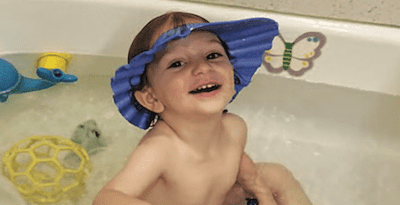The root of the word encouragement is the Latin word cor, which means heart. When we encourage others, we hearten them, cheer them up, inspire confidence in them, and show them care and love.
Encouragement plays a quintessential role both in child development and in the development of healthy relationships. To understand why that’s the case, let’s begin by briefly reviewing the theories, criteria, concepts, and tools that help make Positive Discipline so encouraging.
Theories
Positive Discipline is a relationship-based approach to parenting and guiding children. It is also rooted in the psychological theories of Alfred Adler and Rudolph Dreikurs. Adler asserted that all human behavior stems from a fundamental psychosocial need for belonging and significance. Dreikurs built on Adler’s theories, asserting that misbehavior stems from the discouragement that children experience when their needs for belonging and significance aren’t met.
Criteria
There are five criteria for effective discipline: helping children experience belonging and significance; modeling mutual respect; an emphasis on long-term effectiveness; teaching social and life skills that build character; and instilling in children a sense of capability and a desire to make positive contributions.
Concepts and Tools
Some examples of Positive Discipline concepts and tools include connection before correction, kindness and firmness at the same time, children do better when they feel better, viewing mistakes as learning opportunities, curiosity questions, collaborative problem-solving, solution-oriented thinking, and encouragement.
Every Positive Discipline theory, criterion, concept, and tool listed above incorporates the use of and fosters encouragement. In that sense, encouragement is more than just a single Positive Discipline tool or concept. It is the methodology behind the transmission of the message of love and should be part of everything that we do with and for children. Encouragement is the heart of Positive Discipline.
Encouragement Is the Antidote to Discouragement
While we would ideally always say and do things that are encouraging to children, doing so becomes both especially important and challenging when children exhibit misbehavior. As previously indicated, misbehavior is a manifestation of discouragement, and that discouragement tends to stem from children trying to get their needs met. It is important to keep in mind that children often lack the skills, experience, and perspective that adults tend to have. Unfortunately, when children misbehave, adults too can become discouraged and make the mistake of attempting to quell misbehavior through punishment. Punishment not only further discourages children, it fails to address the misbehavior over the long-term and compromises the trust and safety that healthy relationships require. The antidote to discouragement is simply encouragement.
Timing Is Everything
When it comes to offering encouragement to discouraged children, timing needs to be taken into consideration. In the heat of the moment, children and adults may become overwhelmed (“the flipped lid”). When someone’s ability to offer or receive encouragement is impeded because of that, it may be best to take a positive timeout and allow everyone to first regain their calm.
Misbehavior As A Manifestation of Developmental Needs
There are four underlying developmental needs that accompany children’s psychosocial need for belonging and significance. They are the need to explore, the need for mastery, the need to individuate, and the need to feel powerful. Those needs can lead to what adults commonly interpret to be misbehavior. Fortunately, there is a set of sequential Positive Discipline tools that addresses misbehavior related to the four developmental needs. Those tools are listening, validating intention, setting appropriate limits, providing explanations, and offering redirection. Note that all of these tools elicit cooperation in ways that are encouraging, developmentally appropriate, and mutually respectful.
Examples of Encouraging Statements and Questions
The following are encouraging statements and questions that can strengthen relationships while addressing misbehavior:
“You love exploring with water! I don’t want the water to make the floor wet and slippery, so let’s bring the pitcher outside.”
“Tell me your point of view, and let’s see if there’s a solution we both like.”
“Let’s take a break and talk about this later when we’re calm.”
“What’s your plan for getting your homework done?”
“Would you like to brush your teeth first or read your book? You decide.”
“I love you, and my answer is still no. You can eat your dessert after dinner.”
“I’m not going to let you hit anyone because hitting hurts. You can tell them how you’re feeling.”
“Thanks for helping!”
“We all make mistakes.”
“I love you no matter what!”
Encouragement and Praise
Positive Discipline educators make a distinction between encouragement and praise.
Encouragement is ideally a form of intrinsic motivation that develops positive self-esteem and promotes an internal locus of control. By recognizing children’s interests, strengths, and goals, children gradually begin to feel naturally motivated to behave respectfully, cooperatively, and ethically. Praise can feel encouraging but often entails judgment and runs the risk of placing an undo expectation on children to please others. As Carol Dweck (known for her work regarding the growth mindset) puts it, the overuse of praise can lead children to become “approval junkies.”
Conclusion
Where did we ever get the crazy idea that in order to help children do better, first we have to make them feel worse? Encouragement helps children do and feel their very best. As Dreikurs said, “children need encouragement, just as plants need water.”
Nurture children with encouragement and watch them grow!
Co-authored by Steven Weiss and Sarah Nofi (Certified Positive Discipline Parent Educators)








